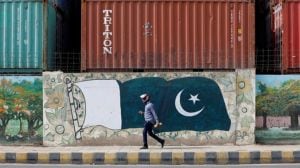Death Bed Bequests
There were times when religion and priests had overpowering influence on people8217;s lives particularly when a person was dying. Death bed...

There were times when religion and priests had overpowering influence on people8217;s lives particularly when a person was dying. Death bed bequests were made under priestly influence for religious and charitable purposes with the expectation of pleasing the Almighty and receiving favourable treatment in after life.
In order to check this abuse, the Indian Succession Act of 1865 and the subsequent Indian Succession Act 1925 Section 118 provided that a person having near relations cannot bequeath his property for religious or charitable use unless the will is executed not less than twelve months before his death, and it is deposited within six months from its execution in some place provided by law for its safe custody. The curious part is that this provision applied only to Christians. Parsis were originally covered by this Section but were excluded by an amendment made in 1991 on the representation of the Parsi community.
In its recent judgment the Supreme Court struck down this section as unconstitutional because it discriminated against the Christians who alone were subjected to these restrictions whereas all other testators making similar bequests are exempt from these stringent provisions. The court held that there was no valid justification for this invidious differentiation. The judgment lays down another important principle namely that although a law may be constitutional when enacted the same may become unconstitutional in view of the changed situation with passage of time. The object behind the said legislation was to protect persons who used to blindly follow the dictates of their priests.
In the court8217;s view 8216;8216;such a purpose has lost all significance with the passage of time and therefore its continuance would be arbitrary and irrational.8217;8217; The argument that this provision offended freedom of religion of the Christians was rightly rejected by Chief Justice Khare and Justice Sinha on the ground that 8216;8216;disposition of property for religious and charitable purpose is recommended in all the religions but the same cannot be said to be an integral part of it. If a person professing Christian religion does not show any inclination of disposition towards charitable or religious purposes, he does not cease to be a Christian.8217;8217;
Making of charitable or religious bequests was held not to be an integral part of the Christian religion. Justice Lakshmanan dissented on the reasoning that contribution for religious and charitable purposes is recognised as a religious obligation. Even so every religious obligation surely does not become an integral part of a religion. A good Christian, like other co-religionists should make charity. But failure to do so is not a sin and he or she is not subject to any religious sanction like ex-communication.
This decision is of great significance to the legal fraternity and religious communities. The politicians will, however, be most interested in exploiting Chief Justice8217;s passing expression of regret in the concluding para of his judgment that Article 44 of the Constitution has not ben given effect to by Parliament and that 8216;8216;a common civil code will help the cause of national integration by removing the contradictions based on ideologies.8217;8217; These observations will stir a hornet8217;s nest. Let us brace ourselves for renewed controversy on the subject. Verily, verily I say unto you there is never a dull moment in our country.
Indo-Pak Friendship
The spontaneous and widespread expression of concern throughout our country for the welfare of the two-and-a-half-year-old Pakistani girl Noor Fatima who had come to India for medical treatment on the bus from Lahore to Delhi was most heart-warming.
It demonstrates that despite sharp political differences between the two nuclear-armed nations there is a reservoir of friendship between the peoples which transcends geographical boundaries and national frontiers. It is heartening to learn that our country has decided to fund the travel, stay and medical treatment of 20 Pakistani children and that the Indian High Commission has been instructed to facilitate their visas.
Goodness can also be contagious. Favourable Pakistani response can certainly be expected in other fields. The importance of such people-to-people initiatives cannot be overstressed. Let us make the most of the changed atmosphere. The Indo-Pakistan Friendship Society, of which I was a founder member, needs to be reactivated. India and Pakistan should soon be playing cricket. There should be frequent exchanges of artists, musicians, academics, lawyers and judges. We have Indo-British, Indo-US and Indo-Canadian Legal Forums. It is high time a Indo-Pakistan Legal Forum is established. Judgments of our Supreme Court and High Courts are frequently cited in Pakistani courts. In the celebrated case of S R Bommai dealing with judicial reviewability of imposition of President8217;s rule our Supreme Court referred to judgments of the Pakistan Supreme Court with approval. Both countries have much to share and learn from one another.
- 01
- 02
- 03
- 04
- 05






























